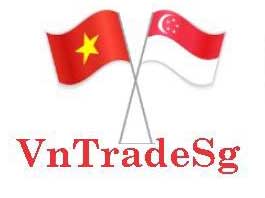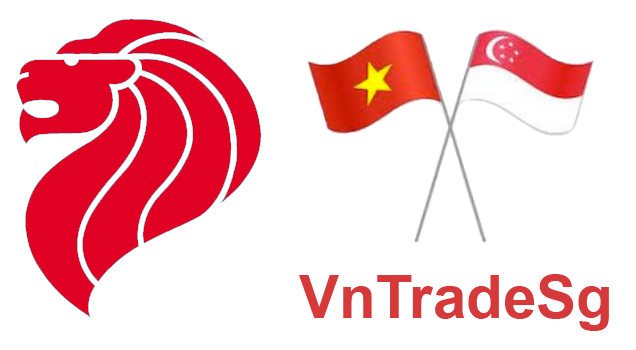The European Union entry ban on its wide borders, which came into effect last week, comes in a crucial year for Vietnamese exporters to the EU, leading to the EU-Vietnam Free Trade Agreement to become ever more important for both sides in the year to come.
Every week, Vina T&T Group, a pioneer in exporting fruit to worldwide markets, has many shipments by air, accompanied by commercial flights for passengers to EU countries. However, the company’s management board got nervous when they heard about European countries temporarily shutting their external borders to most non-residents for the first time in order to avoid the spread of the novel coronavirus.
“Luckily, the ban does not officially affect the shipment of goods as it only applies to individual travellers. However, with flights to Europe greatly reduced, it appears almost certain that the volume of air transport cannot maintain the same frequency as before,” said Nguyen Dinh Tung, general director of Vina T&T.
In an effort to battle the coronavirus outbreak that has lit across the continent, leaders of the EU have agreed to close the bloc’s external borders to most non-EU citizens for 30 days. However, the closure is not a lockdown. Accordingly, EU citizens, their relatives, diplomats, medical professionals, and freight carriers are exempted from the above provisions. Internal movements are permitted but subject to certain restrictions.
Doomy times for trade
The new movements created chaos at airports as well as concern for strict controls on EU exports all around the world, Giorgio Aliberti, Ambassador of the EU Delegation to Vietnam, claimed that the EU “has yet to limit goods from Vietnam.” The reduction of orders or cancellations have come from specific companies that have been hit hardest by the global epidemic.
Ta Hoang Linh, head of the Ministry of Industry and Trade’s (MoIT) Department of European-American Market said that this EU disease control regulation may not affect the import and export of goods between Vietnam, as it only applies to individual travellers.
“Basic cargo transportation and trading activities are not restricted. However, under some economic aspects, these epidemic control measures will in fact affect the speed of goods movement in export, transportation, customs clearance, and storage, causing disruptions or delays in trade and service flows.”
Linh predicted that trade activities between the EU and partners including Vietnam will also be somewhat limited as the main export countries of Vietnam in the European market, such as the Netherlands, Germany, the UK, and France, all have implemented strong solutions to control and close their borders. Thus, the demand for non-essential goods such as textiles, footwear, furniture, and phones, which are Vietnam’s key export products to the EU market, will likely decline.
Meanwhile, purchasing power for agricultural products and food can still be maintained according to the MoIT.
Nicolas Audier, chair of European Chamber of Commerce in Vietnam (EuroCham) admitted that enterprises around the world are facing unprecedented challenges, and those in Vietnam are no different.
Currently, the EU is the second largest export market for Vietnam. In 2019, the volume of goods exported by sea reached €20.5 billion ($22 billion), by air €14.5 billion ($15.5 billion), by railway €671 million ($720.5 billion), while imports by sea, air, and rail respectively reached €5.9 billion ($6.3 billion), €3.55 billion ($3.8) and €9 million ($9.6), according to the MoIT.
In the first three months of this year, trade between Vietnam and European countries witnessed a reduction due to prolonged holidays on both sides, combined with businesses in a number of areas waiting for the EU-Vietnam Free Trade Agreement (EVFTA) to come into effect in the summer to release goods and enjoy preferential tariffs.
The MoIT forecast that Vietnamese exports to the EU in the next two quarters of this year may face a decrease by 6-8 per cent if the epidemic continues until June.
Pham Van Viet, deputy chairman of Ho Chi Minh Textile and Garment Embroidery Association, told VIR that the association’s members are stuck as European importers announced a 30-day suspension of all imports. The EU is a major market for Vietnamese textiles and garments. In 2019, the EU imported $4.4 billion worth of this type of goods from Vietnam, an increase of 2.2 per cent on-year.
In Viet’s view, if the EU could control the outbreak within two months like China did, it would take more than a quarter to bring production and export activities back to normal.
In addition, goods imported to European countries by air may be significantly affected by delays and cancellations. In addition, intra-regional transportation is also more or less affected by a number of countries tightening border controls.
“Along with the EU, the US and Australia are also cutting their commercial flights. All of these are the main export markets of ours,” Tung of Vina T&T added. “With shipments by sea, fortunately, the company still maintains relatively normal operations to the preservation technology we use. However, even here our exports will be reduced by about 20 per cent over the same period last year.”
EVFTA raises hopes
Minister of Industry and Trade Tran Tuan Anh called the EVFTA a significant milestone and said that the two-way trade and investment flow from the EU to Vietnam is forecast to rise robustly, making active contributions to Vietnam’s economic growth, facilitating exports, pushing its market’s diversification, procuring higher added values through newly established supply chains, and creating more jobs.
However Audier from EuroCham said that regarding the EVFTA, it is important to remember that while the European Parliament voted last month in favour of the agreement, it has not yet entered into force. The next and final step before it can be implemented will be a vote in Vietnam’s National Assembly.
“So, while we are all going through a difficult period right now, the EVFTA is a long-term, once-in-a-generation change in EU-Vietnam relations,’ he said. “I am confident that, whatever the challenges we face now, in the long-term the EVFTA will usher in a new wave of trade and investment between the EU and Vietnam.”
Economic growth and exports for 2020 will remain tough during the pandemic. In this context, trade insiders said that the EVFTA will be a lever to push economic growth in general and export in particular.
But trade insiders also warned that the situation could be different if the epidemic is prolonged as some export sectors, such as textiles and footwear, that are expected to benefit the most from the EVFTA, may face difficulties due to disrupted supply chains. The shoe and textile industry is self-reliant with only about 60 per cent of the raw materials they need.
Vietnam’s Ministry of Planning and Investment predicted previously that the EVFTA would help Vietnam’s export value to the EU rise by about 42.7 per cent in 2025, and increase to 44.4 per cent by 2030.
Simultaneously, the import value from the EU to the Southeast Asian market will also pick up speed, growing by about 33 per cent in 2025 and 37 per cent by 2030. On a macro level, the EVFTA would contribute to an average 2.8 per cent to Vietnam’s GDP growth during 2019-2023, increasing to 4.9 per cent during 2024-2028, and 7.35 per cent during 2029-2033.
Facing the complicated situation of the COVID-19 epidemic, the MoIT required its trade offices to update and develop a specific scenario while many large export markets of Vietnamese goods are applying border closures.
Audier also said that EuroCham supports the government’s swift and effective measures to prevent the spread of COVID-19, and continues to advise its members to follow official advice and take appropriate precautions to protect their companies and workers.
“The international travel bans introduced this week in Vietnam, Europe, and elsewhere, are hopefully a short-term measure. We also hope that the virus can be brought under control as soon as possible. While it could have an impact on foreign companies and investment here, all of us doing business in Vietnam need to put the health and wellbeing of the public first,” Audier explained.
“In Europe, many countries have adopted a stimulus package to help sustain the economy which will benefit businesses of all kinds and in all sectors and industries, including special packages for small- and medium-sized enterprises and entrepreneurs. It is important that a similar package will be offered in Vietnam in the short term. This could take the form of tax relief or social charges.”
Meanwhile, Tung from Vina T&T added, “We are still updating data and capturing trade signals with the EU market in order to know how to deal with them most effectively in time.”
Source: Vietnam Investment Review
















